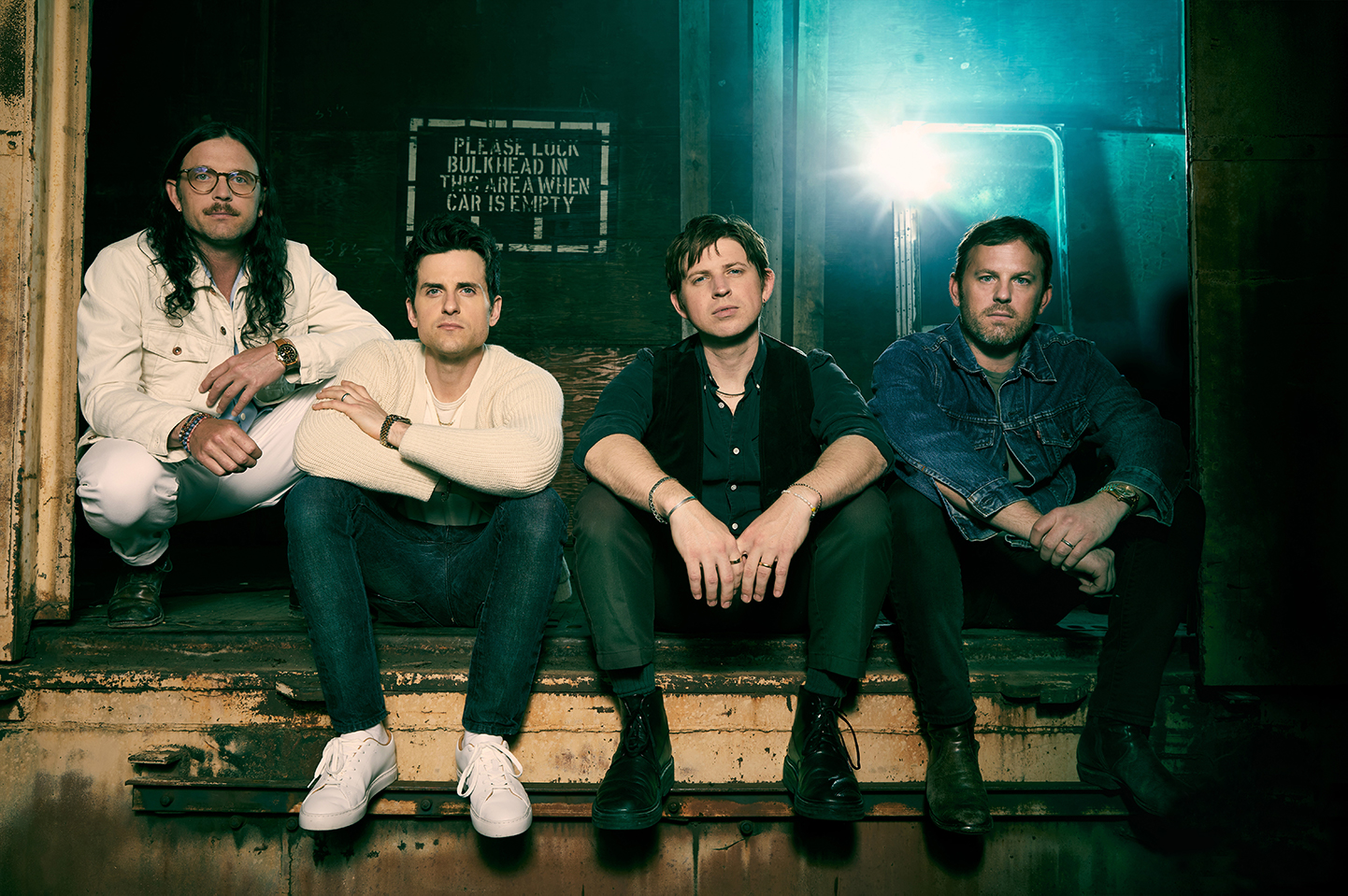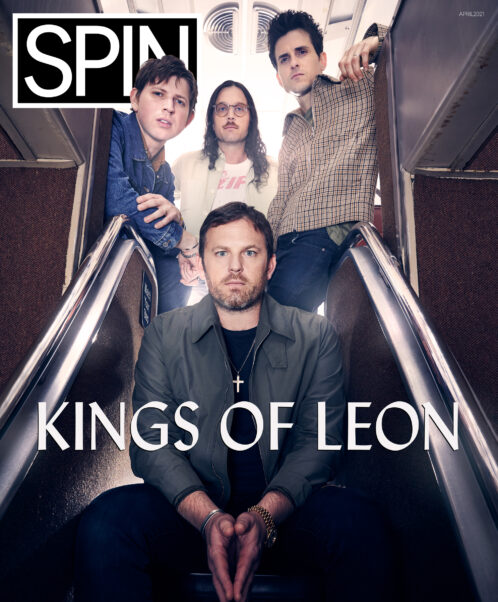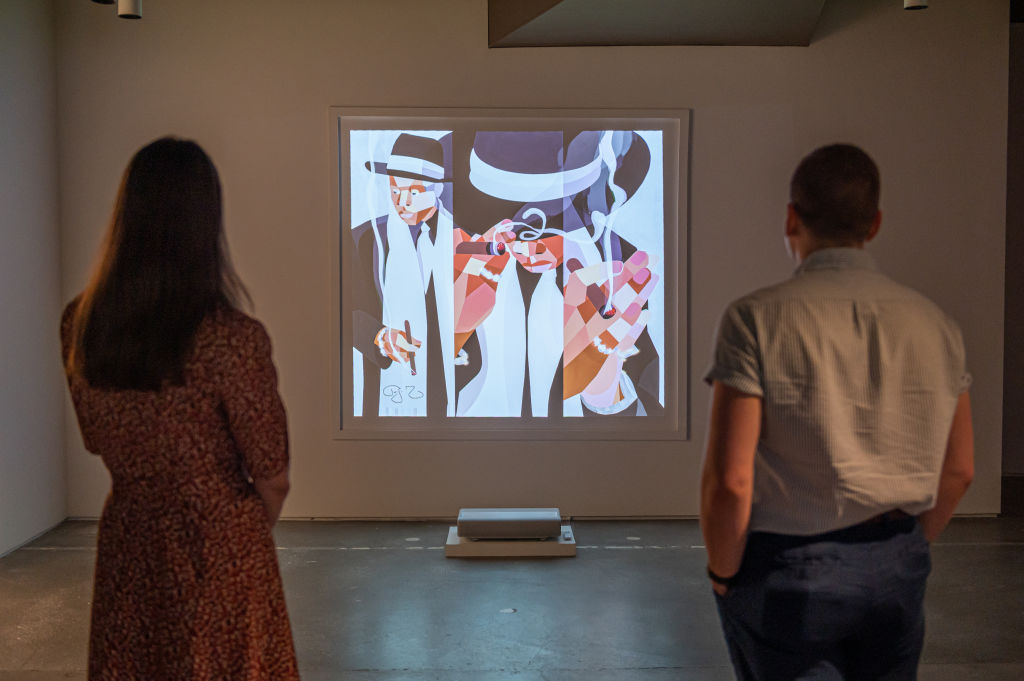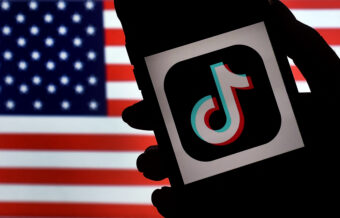“One of my proudest moments was making Golf Digest’s [2014] list of 100 best musician golfers,” the drummer says with a laugh, before explaining some of the game’s nuances — and his hopes of becoming the first musician who plays the game both left-and-right handed to make the list.
But one thing that hasn't changed: Kings of Leon are still one of the world’s biggest and most well-known rock bands, filling that void when anthemic guitar music is largely irrelevant in the mainstream.
In March 2020, they wiped their Instagram page and cryptically teased that something was on the way. At that point, it had been four years since the band released WALLS, the longest they’d gone between albums. After 10 months in a Nashville studio with producer Markus Dravs, the group was ready to unveil what they’d been working on. On top of that, they had an ambitious plan to perform in small venues and play pop-up shows, recreating sets from their early years.
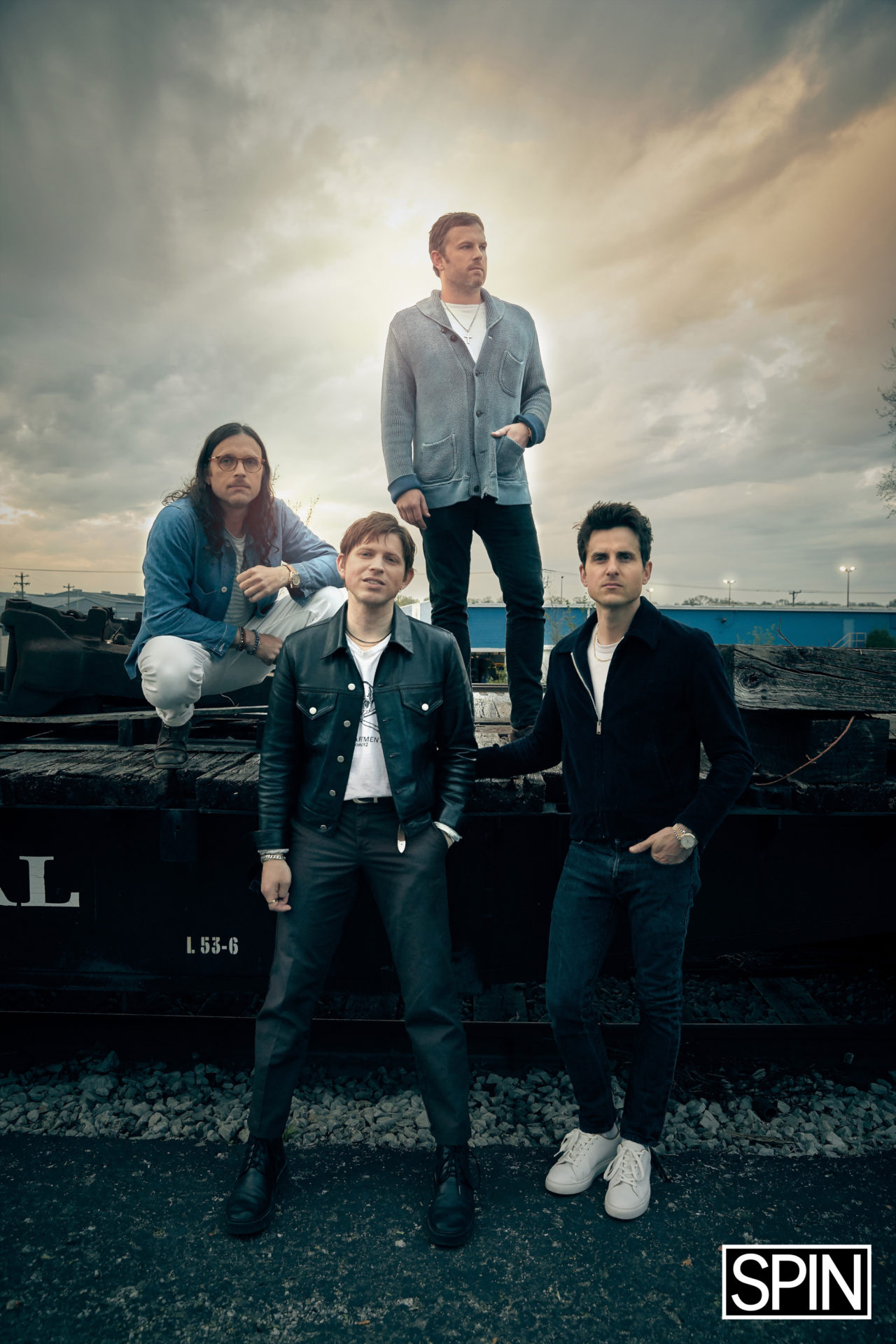
Then COVID-19 hit.
Kings were told to wait two weeks, and then it was another two, then another. Two weeks became two months, which became six months, and ultimately after a year, that album, When You See Yourself, was released on March 5, 2021.
A month later, the Followills are sitting together in a Nashville museum, gathered in a musty midcentury Tennessee Central train car, marveling how the unexpected year off ended up being beneficial, all things considered.
“Right at the beginning, we were all, ‘Oh, nice. We don't have to jump right in,’” remembers lead singer and guitarist Caleb Followill. Sporting a black shirt with clear-rimmed sunglasses dangling from his neck and a lengthy cross necklace, the 39-year-old says that his brothers Nathan and Jared and their cousin Matthew are mostly homebodies, so those first few weeks during the initial lockdown were a welcome break.
As the days wore on, the Followills debated returning to the studio and working songs that didn’t quite make the cut, or, as Caleb says, laying the foundation for future projects. “It was definitely the ultimate case of hurry up and wait.”
Sporting shoulder-length hair and one small hoop earring in each ear, the bespectacled Nathan is as excited to talk about the band’s new album as he is his exploits on the golf course. Next to him is his youngest brother, 34-year-old bassist Jared, the sharpest dressed of the bunch in a ‘70s-inspired plaid jacket, skinny jeans and laced-up white sneakers. Across from Caleb is the trio’s denim-clad cousin, 36-year-old guitarist Matthew, the mildest-mannered of the quartet.
In person, the Followills are vastly different from the reserved public persona they’ve adopted now — and definitely far removed from the rambunctious bunch that ran wild in their early days. These days, they’d rather beam about their own children, rattle off projections about their favorite sports teams and rhapsodize about home life than detail their remaining 2021 plans.
Sitting together, there’s good-natured ribbing and self-deprecating fun. They joke frequently, often at their own expense. Caleb mocks Jared, almost five years his junior, for “slamming Gatorades” — while the others nurse flavored waters and throw out puns about their song titles to each other. Not quite the behavior of roaring wild rock stars.
Kings of Leon have benefited from excellent timing — something they’re happy to acknowledge. They hit it big before social media became unavoidable, and they've operated on their own schedule since their commercial breakthrough in 2008. Nearly a decade and a half since dominating the airwaves, Kings of Leon are the 2021 version of a professional arena rock band. Their singles are easily recognizable, and their signature sound remains reliable without leaning too far on the distant past of Boomer rock.
They’re comfortable with this standing. They now laugh off the criticisms that could have once irked or potentially derailed them. This confidence allows the Followills to be themselves, even around complete strangers.
Watching them mess with each other yet retain a confident posture that’s not quite a swagger, this version of Kings of Leon is assured of their place in music today. Even if it was a long journey to reach that realization.
The group’s rise has been well-documented. They moved to Nashville as teenagers in 1999, after being under-exposed to pop culture as kids due to their father’s work as a Pentecostal preacher. As the tides of the rock world shifted from alternative to post-grunge, bands like the Strokes and White Stripes began their ascent. Kings of Leon struck shortly after. Naming their band after their paternal grandfather, Leon, the group’s raucous February 2003 debut EP, Holy Roller Novocaine, instantly turned them into a buzz band, but Youth and Young Manhood (released that August) and its 2005 follow-up, Aha Shake Heartbreak, built them a rabid audience. Breaking through in the U.K. early in their career dictated instant fame abroad, but at home, the Followills were hardly noticed.
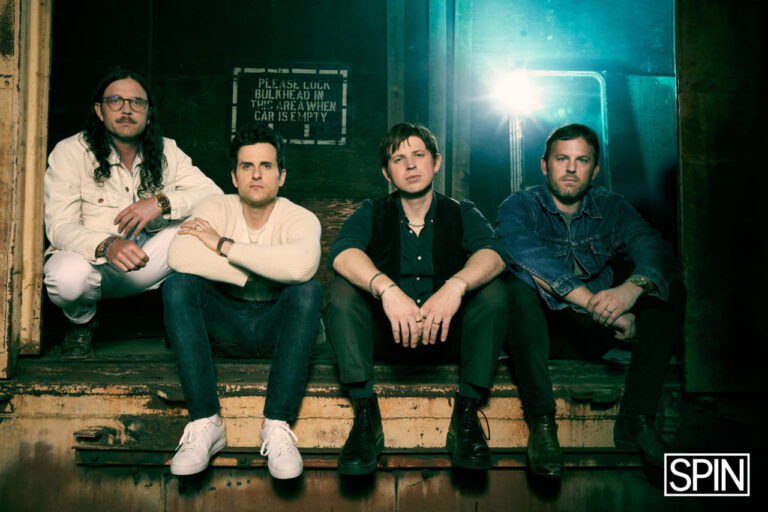
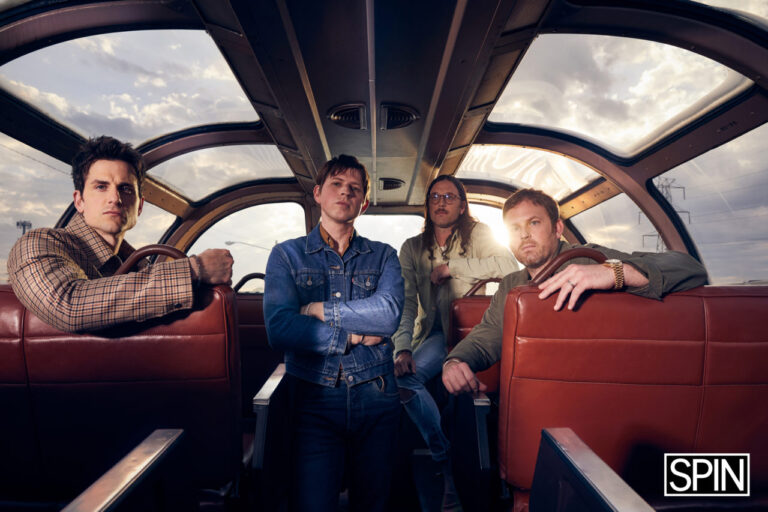
But they steadily built momentum, earning attention outside of their musical bubble. In 2006, musical giants came calling. Tours with U2, Bob Dylan and Pearl Jam introduced the Kings of Leon to a much wider audience in the U.S. — similar to the ones they experienced overseas. Watching those artists operate on a higher level forced Kings of Leon to make a decision. Either they could continue living wild lives, or they could become professional, fulfilling the commercial potential that they flashed on their first two albums. Getting a taste of the big time made that decision easier.
“If anything, it taught me that you could be huge and still be cool,” Jared says of that pivotal year. “We looked up to those guys. A lot of people do think that if bands become huge, they’re suddenly uncool. People see it as a stigma, and then meeting those people and seeing the way they live…I'm learning more from [these people] than I am from these other bands we're hanging out with and playing these shitty bars with.”
“They also see where you’re at in your career,” Caleb adds. “Even when you're not asking for advice, there are little subtle ways of them giving you advice. Pearl Jam and U2 especially. They tried to take us under their wing and mentor us.”
Kings of Leon learned how to be a career rock band without burning out or breaking up.
“At that point in our career, we had to make the choice of, 'So we want to be the band we are right now: still partying all the time and chasing girls?'” Nathan says. “That was fun, but does that have a shelf life? We looked at those guys who had their own tour buses and flew back after each show to an amazing hotel. That was the fork in the road for us at a very young age — especially for Jared and Matt, who probably would have loved to stay where we were for at least a few more years to enjoy that life because they were young. But that was the point when we made the decision that we want [the headlining perks].”
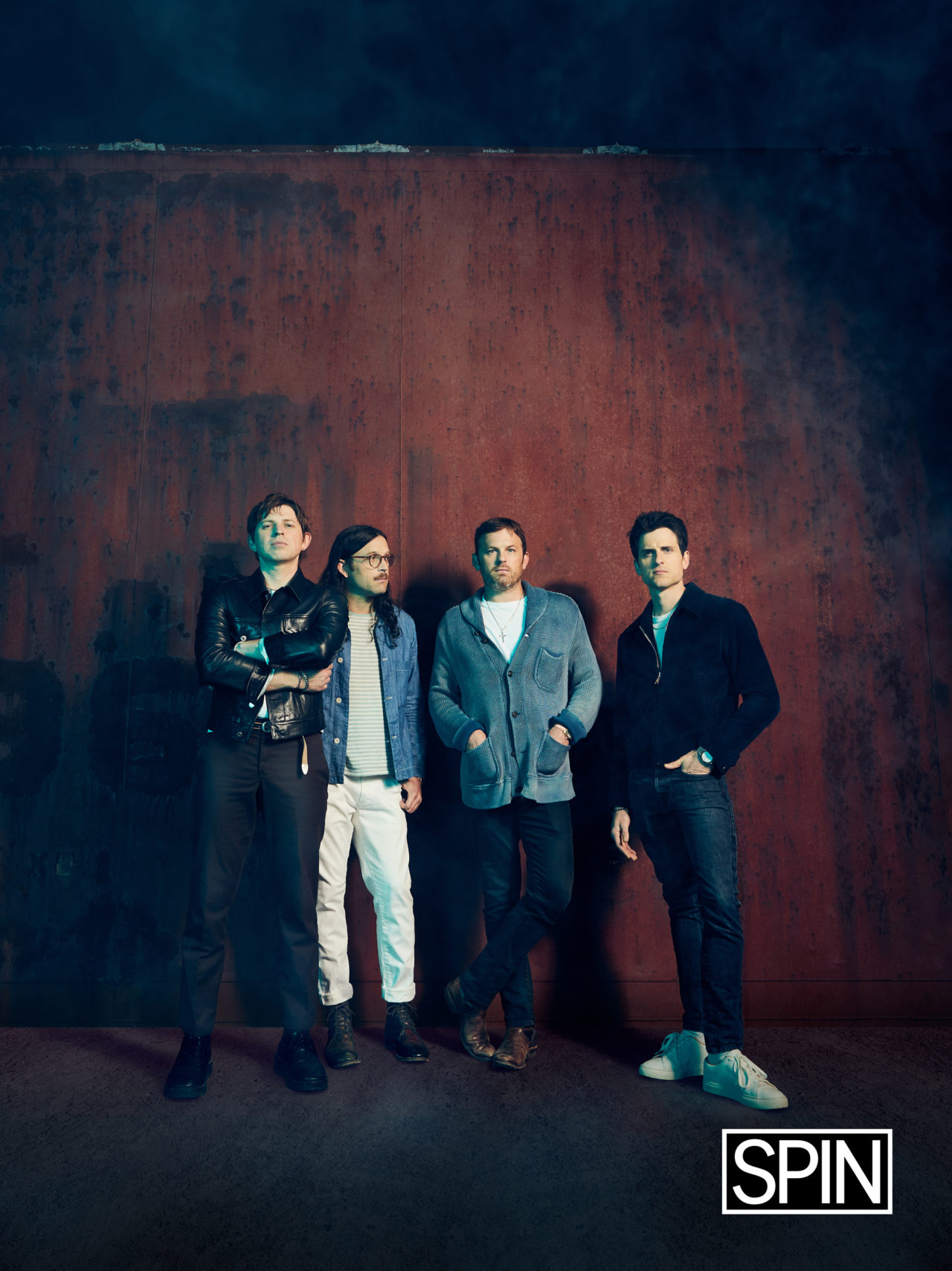
Matthew adds: “We could see what this could be if we worked really hard — that one day we could be at these places too.”
The strongest piece of advice — and a warning — came from Eddie Vedder.
Hanging out at the Followills’ farm outside of Nashville and following games of horseshoes and skeet shooting, they played Vedder Only By the Night, which they also mentioned in an anecdote to this publication in 2009. But what stuck with them was what the singer told them after.
“He said, ‘You’re gonna ride a big wave,’” Caleb recalls of that night in the barn. “He also said that we shouldn’t get scared when the waves that come next aren't as big. He basically said that that was going to be a big moment in our career — and there are going to be other moments in our career that might not feel as big as that. But [we should] just keep getting out there and there will be more big waves.”
“I wish he was right about the other big waves,” Jared quickly chimes.
Following their 2006 tour and a transitional album, 2007’s Because of the Times, Kings of Leon finally got their coveted stateside breakthrough with 2008’s Only By the Night, their first platinum album in the U.S. The soaring rocker “Sex on Fire” and midtempo power ballad “Use Somebody” were bonafide radio hits — earning them a much bigger audience, culminating a years-long process of building a fan base organically through word of mouth in the nascent social media days. They also won Record of the Year at the 2010 Grammys for the latter song, besting Taylor Swift, Beyoncé, Lady Gaga and Black-Eyed Peas. Arenas and festival headlining slots became the norm, as were the private planes and rock star perks.
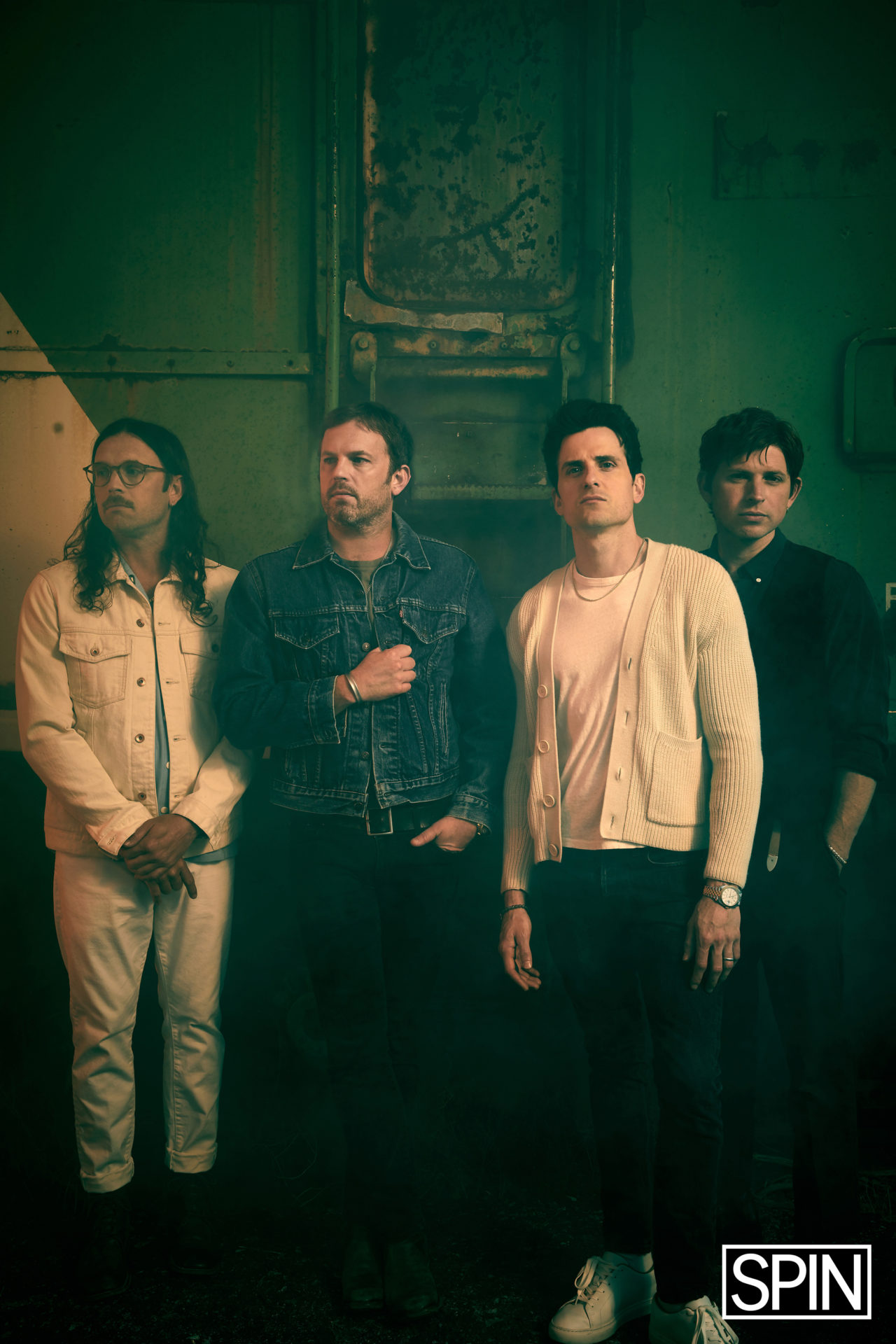
It nearly fell apart shortly thereafter. The external pressures on 2010’s Come Around Sundown hit a crescendo at an infamous incident in Dallas a year later when Caleb left in the middle of a show, never to return, and the band subsequently canceled the rest of their U.S. tour. But that inflection point and airing of internal grievances allowed Kings to move forward when they could have easily called it quits.
Honing their arena skills on the 2014 Mechanical Bull tour (“When we saw a wall of screens, we knew we were doing that for sure,” Matthew says of the tour's stage backdrop) saw them comfortably settle into their current stature as permanent arena rock stars. Many of their contemporaries from the early 2000s either broke up or became a shell of their former selves. Yet after 2008, Kings remained consistent.
With their success and embrace of a stadium-sized sound, the critical plaudits of their earlier years became a thing of the past — something the band has come to accept and are well-aware of. It’s also what allows them to continue to operate in their own universe without worrying too much about trends and cultural shifts. Kings of Leon know, following their initial mainstream success, that their cachet among reviewers has plummeted. They’re at peace with being critical targets, even if they admittedly glance at review aggregating site Metacritic from time to time.
“I remember being so concerned with [good reviews] in the past,” Matthew says. "I can tell for myself what I think is good and bad with what we're doing.”
But Kings still have their own place alongside the arena-packing mentors. And it’s something they don’t take for granted even as they find new ways to try to push themselves and win over more fans at this stage of their career.
That includes convincing the many doubters that there’s something still there.
“You don't want to chase off your fans, but you do want people to go, ‘Oh, shit, I would never say this in public but that new Kings song was pretty cool,’” Caleb says.
In 2021, the era’s biggest stadium stars are arguably Billie Eilish, BTS, Beyoncé, Taylor Swift and the Weeknd — artists who reflect contemporary trends.
Kings of Leon are aware of this. But as Jared points out, people have always been attracted to mainstream artists who stick to their own ethos and live freely — it's been that way since the '60s. It also doesn’t mean that bands like Kings of Leon are relegated to the annals of history.
“The one thing that I've realized is that people are still going to go watch a rock show,” Caleb says. “People are dying to get off their couch and go watch a fucking rock and roll show. And luckily, we can do that."
When You See Yourself sees Kings of Leon take a bit of a leap forward creatively — by their standards — leaning a bit more heavily on synths to enrich their sound. And while they aren’t the first, second or 100th band to venture into political territory, the band wade into that territory on “Claire and Eddie,” a climate change cautionary tale that references the wildfires popping up all over the globe in recent years.
Outside of that, the group stuck to their formula of writing broad tales about everyday characters and stories that remain relatable even as the world around them grows more complex. Kings of Leon also know what works for them won’t necessarily work for other bands — an acute awareness that comes with being in a family band for 20 years. (“He’s going to play that open E part again, I can’t believe it,” Matthew says, sarcastically looking back on their writing process.)
“Your goal as an artist is to develop a style and sound, but you don’t want to repeat yourself,” Caleb says. “At the same time, we worked hard at this, and now we’re a band that has a sound and feel.”
“And for a new band, [achieving a signature sound] is the hardest thing to do,” Matthew adds. “To find a place where you sound different than everyone else. At first [when listening to a new song], it’s like, ‘Oh, that sounds like Kings of Leon,’ and I’ll be like ‘Man, did we do the same thing again?!’ But also, it’s a cool thing to achieve as a band.”
“We'll try to step outside of our box and try to do things that are a little bit different,” Jared says. "But it's always going to sound like us — you can't get out of it.”
Ahead of When You See Yourself's March release and the early positive reception to the singles, “The Bandit” and “Echoing,” Kings of Leon ended up making headlines for non-musical reasons.
When it comes time to discuss their leap into the digital realm of NFTs (non-fungible tokens), the Followills collectively groan — but in a good-natured way. Caleb jokes to “not ask [him] about it” and admits he was initially apprehensive since he preferred people talk about their music. Jared lets out a healthy-sized sigh before joking that he is “Not Fucking Telling” and launching into an explanation.
“When [management] first brought it to us, we reacted the same way we react to everything. We said, 'First of all, no. Second of all, tell us about it,'” he says. “They sold me with two things by saying 'This will help artists in the future' and 'You guys can make money to give to charity.'”
The charity Jared is referring to is Live Nation's Crew Nation fund, which supports touring crew members who have lost their jobs due to the pandemic.
Soon, the band ended up in a media outlet as far from infernal music publications as a band can get: CNBC. As Kings of Leon recall hearing their names mentioned as part of the ongoing NFT craze, they’re amused by how they were debatably the first band (depending on your point of view) to take the leap into blockchain, forging a path that is expected by forward-thinking artists like Radiohead and Wu-Tang Clan.
The band’s creative director, Casey McGrath, is confident in the band’s decision to take a bold step forward by embracing NFTs.
“It's not just a music thing or an art thing,” McGrath says energetically. “Rooting for it is rooting for the democratization of all of this stuff and rooting against it is like rooting for major labels and big banks. In music, it’s the good guys winning and the small artists making money. Artists selling 10,000 records now can make a living on that in a way that they absolutely can't [otherwise].”
"[NFTs are] a closer way to have a relationship directly with your fans," he adds. "They're successful, but it hasn't been like, 'Did you see what Kings did?' But they wanted that."
The biggest ticket item included four lifetime front row seats to one Kings of Leon headlining show on every tour they play for life.
“We have a couple of ex-girlfriends out there, so that might backfire on us,” Caleb says sardonically.
The NFTs have raised over $2 million, with $600,000 of that going to charity. And, oddly enough, embracing that trend so early brought the band back into a wider conversation.
“It made people go, ‘Oh, man, these guys are still kicking around and doing something that’s on the forefront,’” Caleb says. “I’m happy that we were the ones that led the way and not trying to jump on it.”
Being in a family band rarely ends well. Just ask the litany of groups that couldn’t get over their personal squabbles for the greater good of their art. Yet the Followills continue to get along by drowning out the outside noise. Kings of Leon have become a self-sustained entity unto themselves, defying the odds not just as a group, but grasping longevity at a time when mainstream rock is a relic of the past. So how do they do it?
“Luckily, it’s really hard to pull somebody’s hair to death,” Jared cracks to the laughter of his brothers and cousin. Caleb chimes in, saying that "as easy as it is to fight, it’s just as easy to make up."
After another round of laughter subsides, Jared continues, “The positives outweigh the negatives so much that I just can't imagine not being in this band. I wouldn't want to start over with another band and tour. I wouldn't want to do anything else.”
“As long as everyone's there for the right reason,” Caleb says. “Just wanting to make good music, that’s something that I can see myself doing forever.”

